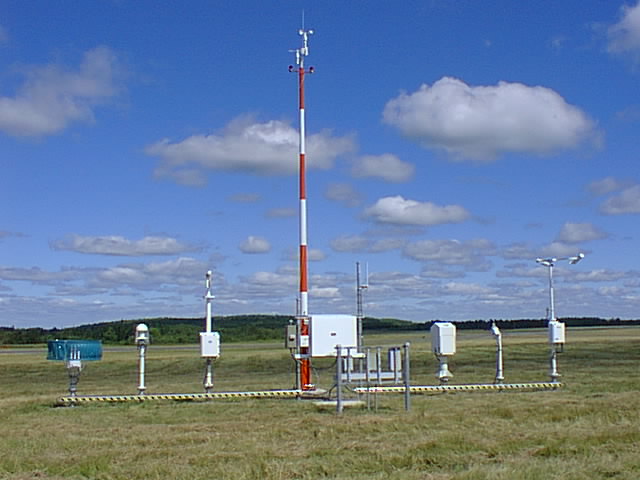The Port of Port Townsend is set to install a new AWOS 3P weather station at the Jefferson County International Airport later in October. As an FAA facility, the airport qualified to have 95% of the cost of the new station underwritten by Federal and State grants.
The AWOS is an automated airport weather station that is designed to serve aviation and meteorological observing needs for safe and efficient aviation operations, weather forecasting and climatology. After installation, Jefferson County International Airport will be part of the nation’s primary surface weather observing network, providing our region with accurate and location-specific condition reporting and forecasts.
According to Port Commissioner and pilot Pete Hanke, AWOS will improve pilot safety, by facilitating safer takeoffs and landings at the airport.
“What’s really key is knowing what the weather is doing at the airport that you are arriving at. Thanks to AWOS, pilots will now be able to get up to the minute, accurate conditions that directly integrate into their onboard navigation tools.”
Existing services such as Accuweather and Weather Underground use computer algorithms instead of direct measurements to determine forecasts and conditions in our area. AWOS integration into the National Weather Service system allows for a high level level of accuracy and localization.
Pilots are just one beneficiary of the accurate systems. According to Port Deputy Director Jim Pivarnik, Airlift Northwest will be able to serve our community more safely. “Currently, there are times when Airlift Northwest doesn’t really know what they are flying into. That’s a risk for them, and obviously for the community members they are transporting. They can’t wait for AWOS to be installed.”
More broadly, better weather information will benefit other segments of the Jefferson County economy, including the agriculture and maritime sectors. In addition Jefferson County PUD will get a direct link to the system.
The total system cost for the AWOS 3p system is $337,500. Federal and State grants will pay for $320,250 of the system, with the Port paying $16,500.

